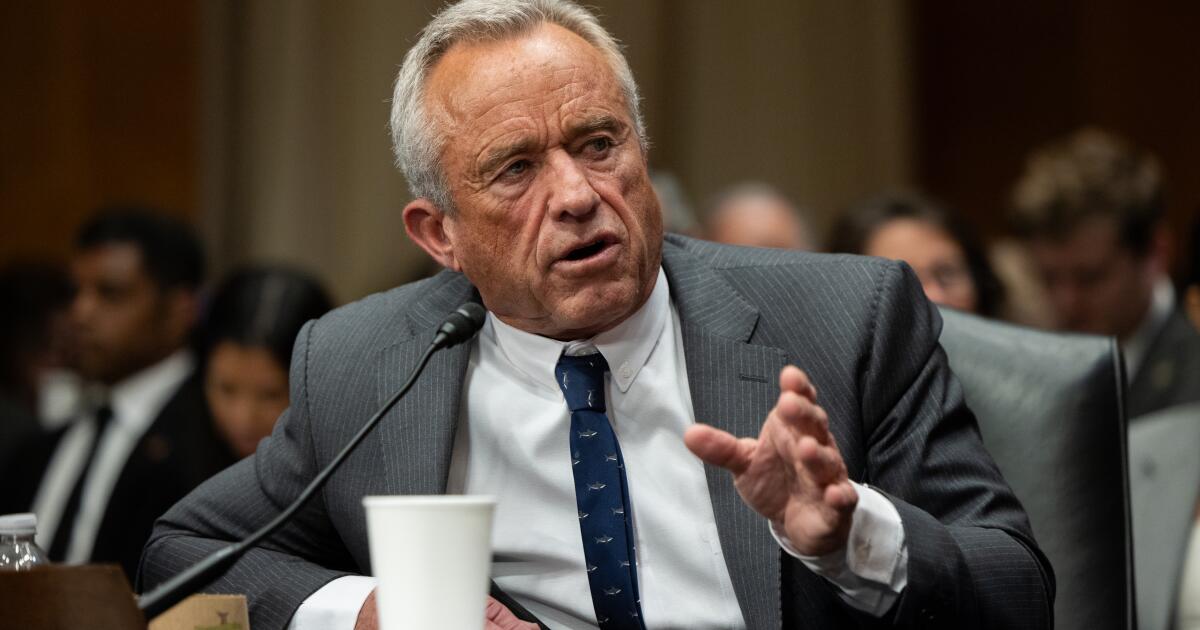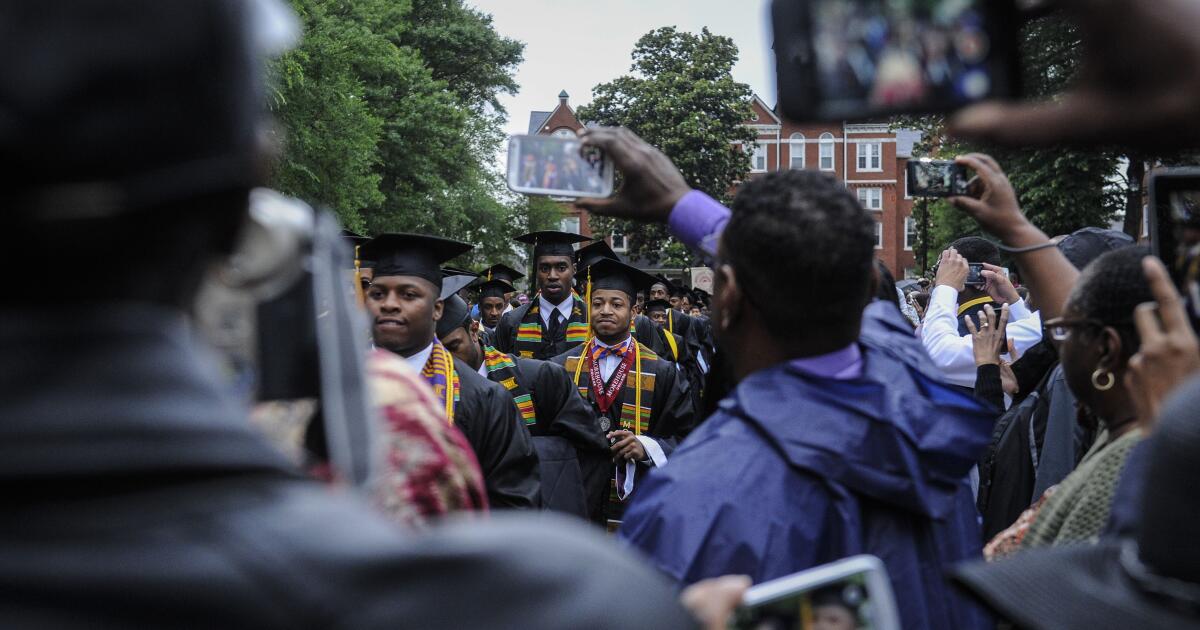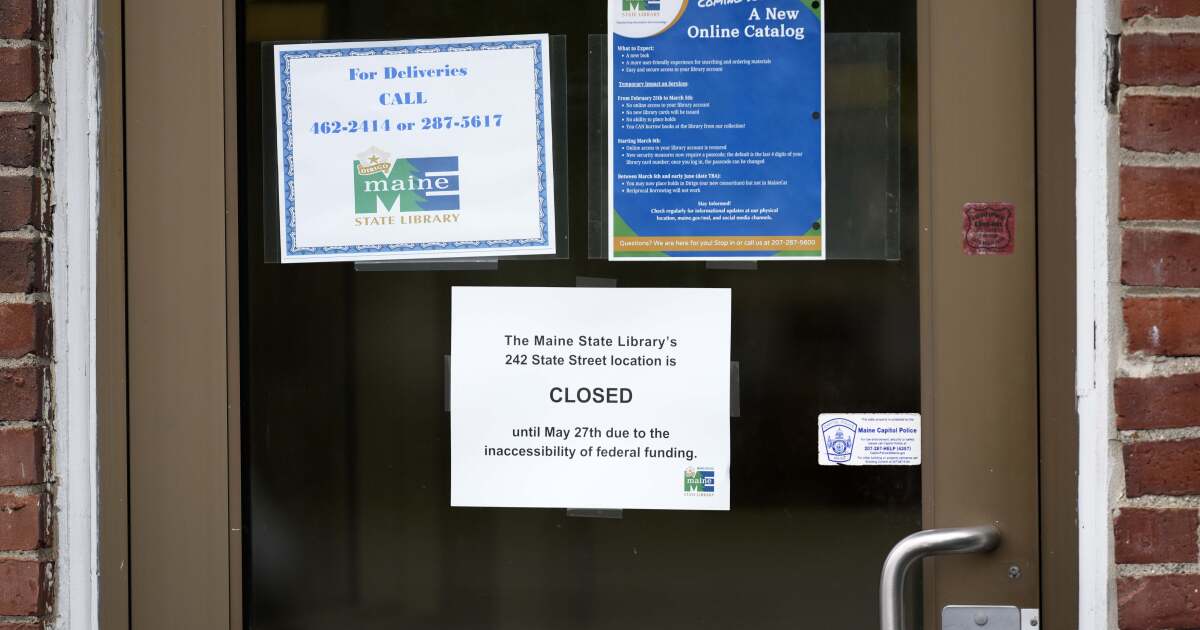Federal funding for sex education in California is cut over ‘radical gender ideology’
The Trump administration has canceled a sexual education grant to California worth about $12.3 million on the grounds that it included “radical gender ideology” after state officials refused to revise the materials.
The funding helps pay for sex education programs in juvenile justice facilities, homeless shelters and foster care group homes, as well as some schools, reaching an estimated 13,000 youths per year through 20 agencies.
State officials did not have an immediate response Thursday morning to the federal announcement, which was linked to a 60-day compliance deadline.
“California’s refusal to comply with federal law and remove egregious gender ideology from federally funded sex-ed materials is unacceptable,” said Acting Assistant Secretary Andrew Gradison, of the Administration for Children and Families. “The Trump Administration will not allow taxpayer dollars to be used to indoctrinate children. Accountability is coming for every state that uses federal funds to teach children delusional gender ideology.”
State officials had taken the position that its materials are accurate and did not violate the terms of the federal grant.
California is not being accused of failing to carry out the abstinence and contraception instruction funded by the grant. Rather, the state has included additional content that the Trump administration defines as objectionable and “outside the scope” of the grant’s purpose.
A June 20 letter to a senior California official cited, as one of several examples, sample wording from a middle school lesson:
“We’ve been talking during class about messages people get on how they should act as boys and girls — but as many of you know, there are also people who don’t identify as boys or girls, but rather as transgender or gender queer. This means that even if they were called a boy or a girl at birth and may have body parts that are typically associated with being a boy or a girl, on the inside, they feel differently.”
The California Department of Public Health responded in an Aug. 19 letter that it “will not make any such modifications at this time” because its materials already had been approved by the same agency that is now demanding change. In addition, officials described the materials as “medically accurate” and relevant to the instructional goals. California also challenged whether the Trump administration had authority to cancel the grant in this manner.
The amount of money at stake is small compared with other issues that are being litigated between California and the Trump administration, but the dispute embodies now-familiar legal parameters that have resulted in more than three dozen lawsuits.
The grant cancellation also represents another front in the conflict between the Trump administration and California related to LGBTQ+ issues. These culture war-fueled disputes date back substantially to Trump’s Jan. 20 executive order that recognized two sexes, male and female, a dictum that has moved across all departments under his jurisdiction.
In youth sports, this divide has unfolded with Trump threatening to withhold vast sums of federal funding unless California bars transgender athletes from girls’ and women’s sports.
California has responded by creating dual-award categories for women’s sporting events, so that the success of a trans athlete, in a track-and-field competition for example, would not prevent another athlete from winning an award. The compromise does not address the issue of trans athletes in women’s team sports, such as volleyball.
The Trump administration does not accept these steps taken by California as compliance with its directives.
Within the classroom, the Trump policy opposes curriculum that allows for more than a binary — male or female — expression of gender. Historically, federal authority over local curriculum has been limited, but Trump has been quick to use federal funding as leverage.
In this case, it’s the Administration for Children and Families at the U.S. Department of Health and Human Services that has been applying pressure.
The children and families department administers a grant program that annually distributes $75 million nationally “to educate adolescents on … both abstinence and contraception for the prevention of pregnancy and sexually transmitted infections, including HIV/AIDS,” according to federal statute.
For a three-year period, through the next fiscal year, California has been allotted funding worth more than $18.2 million, according to Health and Human Services. Under the federal decision, the state is expected to lose $12.3 million that it has not yet received, covering multiple years.
The federal grant supports the California Personal Responsibility Education Program, or CA PREP, which provides “comprehensive sexual health education to adolescents via effective, evidence-based or evidence-informed program models,” according to a statement from the state.
“Data show that participants who completed CA PREP had a better understanding of sexual and reproductive health topics and improved health outcomes,” the health department stated.
The Trump administration does not deny that the federal government had previously approved the California materials, but said the Biden administration “erred in allowing PREP grants to be used to teach students gender ideology.”
California law requires school districts to provide students with comprehensive sexual health education, along with information about HIV prevention, at least once in high school and once in middle school.
The Trump administration has asserted complete authority over federal grants, including those in progress. Many of its grant cancellations are being challenged in court. Some have been allowed to take effect; others have been blocked. In some instances, Congress has narrowly approved grant cancellations, including for foreign aid and to support the public broadcasting network.



